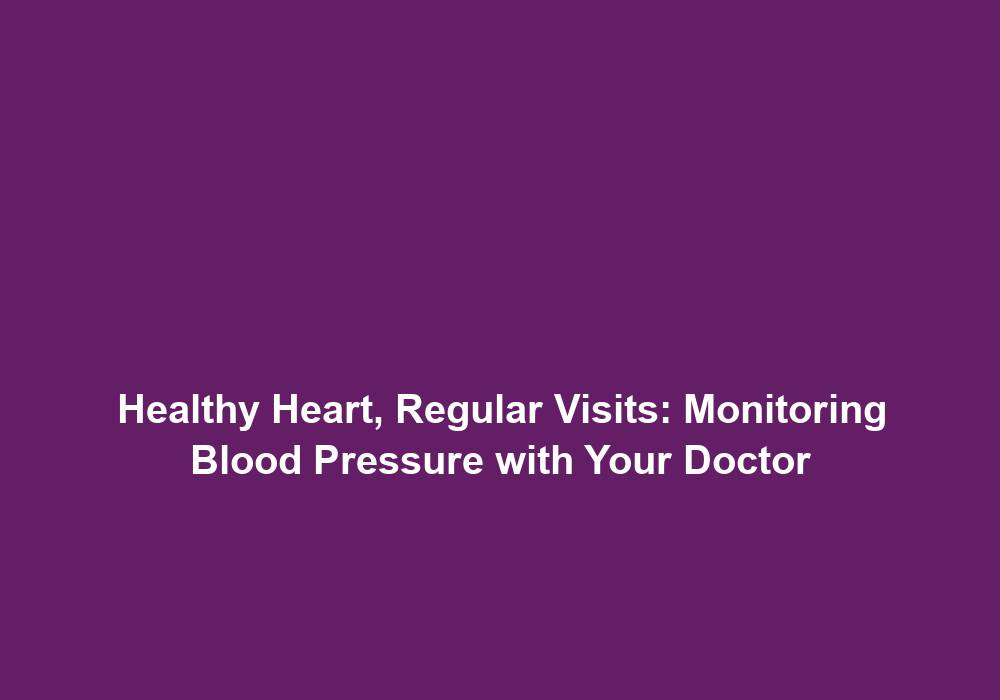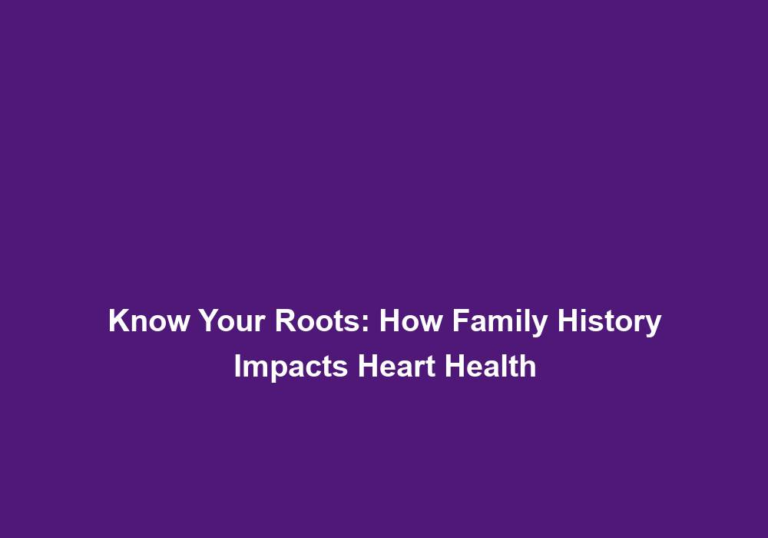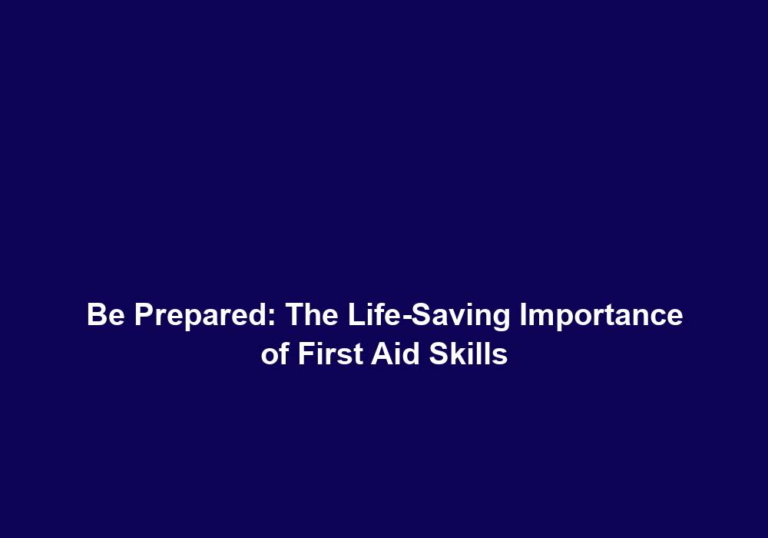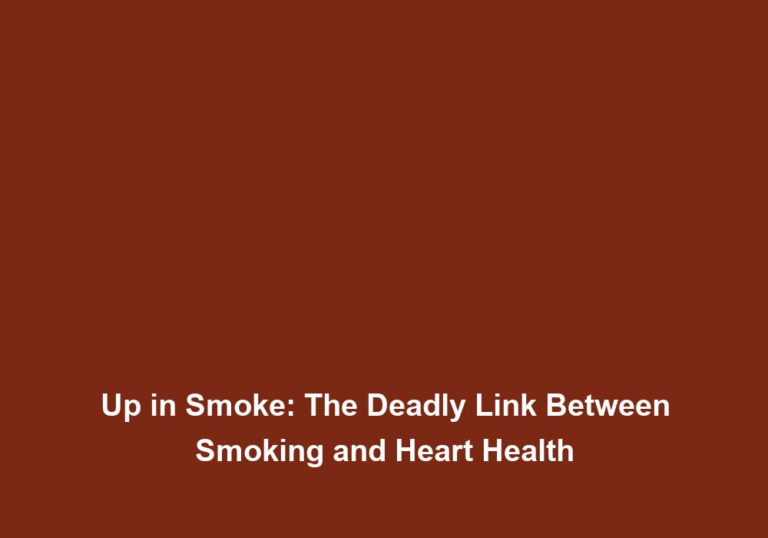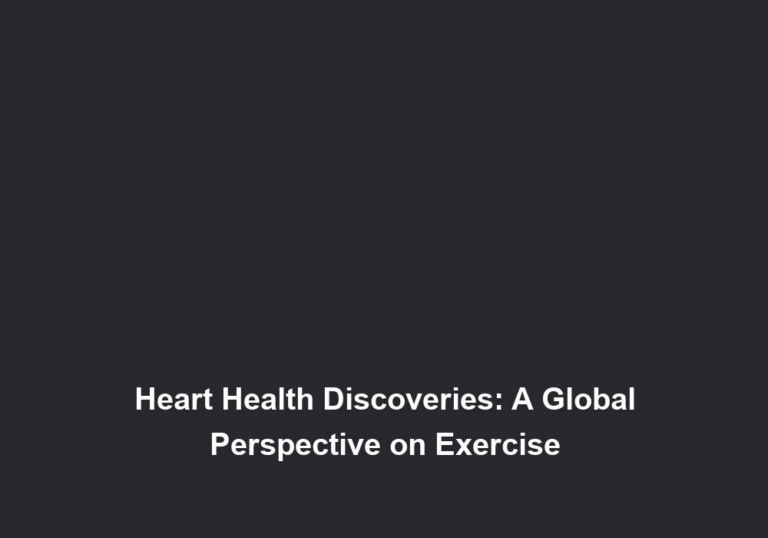Healthy Heart, Regular Visits: Monitoring Blood Pressure with Your Doctor
High blood pressure, also known as hypertension, is a common health condition that affects millions of people worldwide. It is often referred to as the silent killer because it usually has no symptoms but can lead to serious health complications if left untreated. In order to keep your heart healthy and prevent such complications, regular visits to your doctor for monitoring your blood pressure are crucial.
Importance of Monitoring Blood Pressure
Monitoring your blood pressure is important for various reasons. It helps your doctor to:
-
Detect High Blood Pressure: Regular blood pressure monitoring enables early detection of high blood pressure. This allows your doctor to implement timely interventions and develop a personalized treatment plan to manage your condition effectively.
-
Assess Treatment Effectiveness: Monitoring your blood pressure helps your doctor to evaluate the effectiveness of your current treatment plan. If your blood pressure is well-controlled, it indicates that the treatment is working. On the other hand, if it remains high, adjustments may be needed to achieve better outcomes.
-
Identify Hidden Health Issues: Blood pressure measurements can uncover underlying health conditions that may contribute to high blood pressure. Your doctor can investigate further and address these issues, potentially improving your overall health and reducing the risk of complications.
-
Track Progress Over Time: Regular monitoring allows your doctor to track your blood pressure readings over time. This helps in identifying patterns, such as blood pressure spikes or dips, and understanding how your body responds to different situations. It also helps in making necessary adjustments to your treatment plan as needed.
Regular blood pressure checks provide valuable information to your doctor, allowing them to monitor your cardiovascular health and make informed decisions regarding your treatment. By detecting high blood pressure early, your doctor can take prompt action to prevent further complications and maintain your overall well-being.
Recommended Frequency of Blood Pressure Checks
The frequency of blood pressure checks may vary depending on your individual health status and risk factors. In general, it is recommended to have your blood pressure checked at least once every two years if your blood pressure is within the normal range (less than 120/80 mm Hg). However, if you have a history of high blood pressure or other risk factors, more frequent monitoring may be necessary.
For individuals with hypertension or other cardiovascular conditions, the American Heart Association recommends checking blood pressure at least once per month, or as advised by your healthcare provider. This frequent monitoring helps in keeping a close eye on your blood pressure levels and adjusting treatment plans accordingly.
It is important to note that the frequency of blood pressure checks may vary depending on your specific circumstances. Your doctor will determine the most appropriate schedule for monitoring your blood pressure based on your individual needs.
Preparing for a Blood Pressure Check
Before visiting your doctor for a blood pressure check, it is important to prepare appropriately. Here are a few tips to ensure accurate readings:
-
Avoid Caffeine and Tobacco: Caffeine and tobacco can temporarily increase your blood pressure. It is advisable to refrain from consuming these substances for at least 30 minutes before your appointment. This will help ensure that your blood pressure is not artificially elevated during the check.
-
Empty Your Bladder: A full bladder can affect blood pressure readings. Empty your bladder before the check to obtain accurate measurements. This will help eliminate any potential interference with the blood pressure reading and ensure accurate results.
-
Wear Comfortable Clothing: Choose loose-fitting clothing that allows easy access to your upper arm. Tight sleeves can interfere with the blood pressure cuff placement and result in inaccurate readings. By wearing comfortable clothing, you can ensure that the blood pressure cuff is properly positioned for an accurate measurement.
-
Relax and Sit Comfortably: Sit in a calm and relaxed state for about 5 minutes before the blood pressure check. Avoid talking or engaging in any strenuous activity during this time to ensure accurate measurements. By allowing yourself to relax and settle into a comfortable position, you can help ensure that your blood pressure is measured accurately.
Preparing for a blood pressure check is essential to obtain accurate readings. By following these tips, you can help ensure that the measurements taken by your doctor reflect your true blood pressure levels.
Understanding Blood Pressure Readings
Blood pressure is measured using two numbers: systolic pressure and diastolic pressure. The systolic pressure represents the force exerted on the artery walls when the heart contracts, while the diastolic pressure represents the force when the heart is at rest between beats.
A healthy blood pressure reading is typically around 120/80 mm Hg. Here’s how to interpret blood pressure readings:
-
Normal: A reading below 120/80 mm Hg is considered normal and indicates a healthy blood pressure level. This range is associated with a lower risk of cardiovascular complications.
-
Elevated: Readings between 120-129/<80 mm Hg are categorized as elevated blood pressure. It signals a higher risk of developing hypertension in the future, and lifestyle modifications may be recommended. It is important to take steps to address elevated blood pressure to prevent the progression of hypertension.
-
Hypertension Stage 1: Blood pressure readings ranging from 130-139/80-89 mm Hg indicate stage 1 hypertension. Lifestyle changes and, in some cases, medication may be necessary to manage blood pressure. It is crucial to work closely with your doctor to develop a comprehensive treatment plan.
-
Hypertension Stage 2: Readings of 140/90 mm Hg or higher indicate stage 2 hypertension. Prompt medical attention and a comprehensive treatment plan are typically required. It is important to take immediate action to manage stage 2 hypertension and reduce the risk of complications.
-
Hypertensive Crisis: Blood pressure readings exceeding 180/120 mm Hg are considered a hypertensive crisis. This requires immediate medical attention to prevent organ damage or other severe complications. It is crucial to seek emergency care if you experience a hypertensive crisis.
Understanding your blood pressure readings is essential for managing your cardiovascular health. By regularly monitoring your blood pressure and working closely with your doctor, you can take proactive steps to maintain a healthy heart and overall well-being.
Taking Action to Maintain Healthy Blood Pressure
Maintaining a healthy blood pressure level is essential for a healthy heart and overall well-being. Along with regular visits to your doctor, here are some lifestyle changes that can help you monitor and manage your blood pressure effectively:
-
Eat a Balanced Diet: Focus on consuming a diet rich in fruits, vegetables, whole grains, lean proteins, and low-fat dairy products. These foods provide essential nutrients and help maintain a healthy weight. Additionally, limiting your intake of sodium, saturated fats, and added sugars can further support healthy blood pressure levels.
-
Engage in Regular Physical Activity: Aim for at least 150 minutes of moderate-intensity aerobic activity or 75 minutes of vigorous activity each week. Regular exercise helps in maintaining a healthy weight, strengthening your heart, and improving overall cardiovascular health. It also helps to reduce stress levels and promote relaxation.
-
Manage Stress: Chronic stress can contribute to high blood pressure. Practice stress management techniques such as deep breathing, meditation, yoga, or engaging in hobbies that help you relax. Finding healthy outlets for stress can have a positive impact on your blood pressure and overall well-being.
-
Limit Alcohol Consumption: Excessive alcohol consumption can raise blood pressure. If you choose to drink, do so in moderation (up to one drink per day for women and up to two drinks per day for men). It is important to be mindful of your alcohol intake and consider the potential impact on your blood pressure.
-
Quit Smoking: Smoking damages blood vessels and raises blood pressure. Seek professional help to quit smoking and improve your cardiovascular health. Quitting smoking has numerous benefits for your overall health, including reducing the risk of heart disease and improving blood pressure levels.
By adopting these lifestyle changes and regularly monitoring your blood pressure with your doctor, you can take proactive steps towards maintaining a healthy heart and overall well-being. Remember, prevention and early intervention are key in managing hypertension and reducing the risk of complications.
Note: The content provided is for informational purposes only and does not constitute medical advice. It is always recommended to consult with a healthcare professional for personalized guidance and treatment options specific to your condition.

